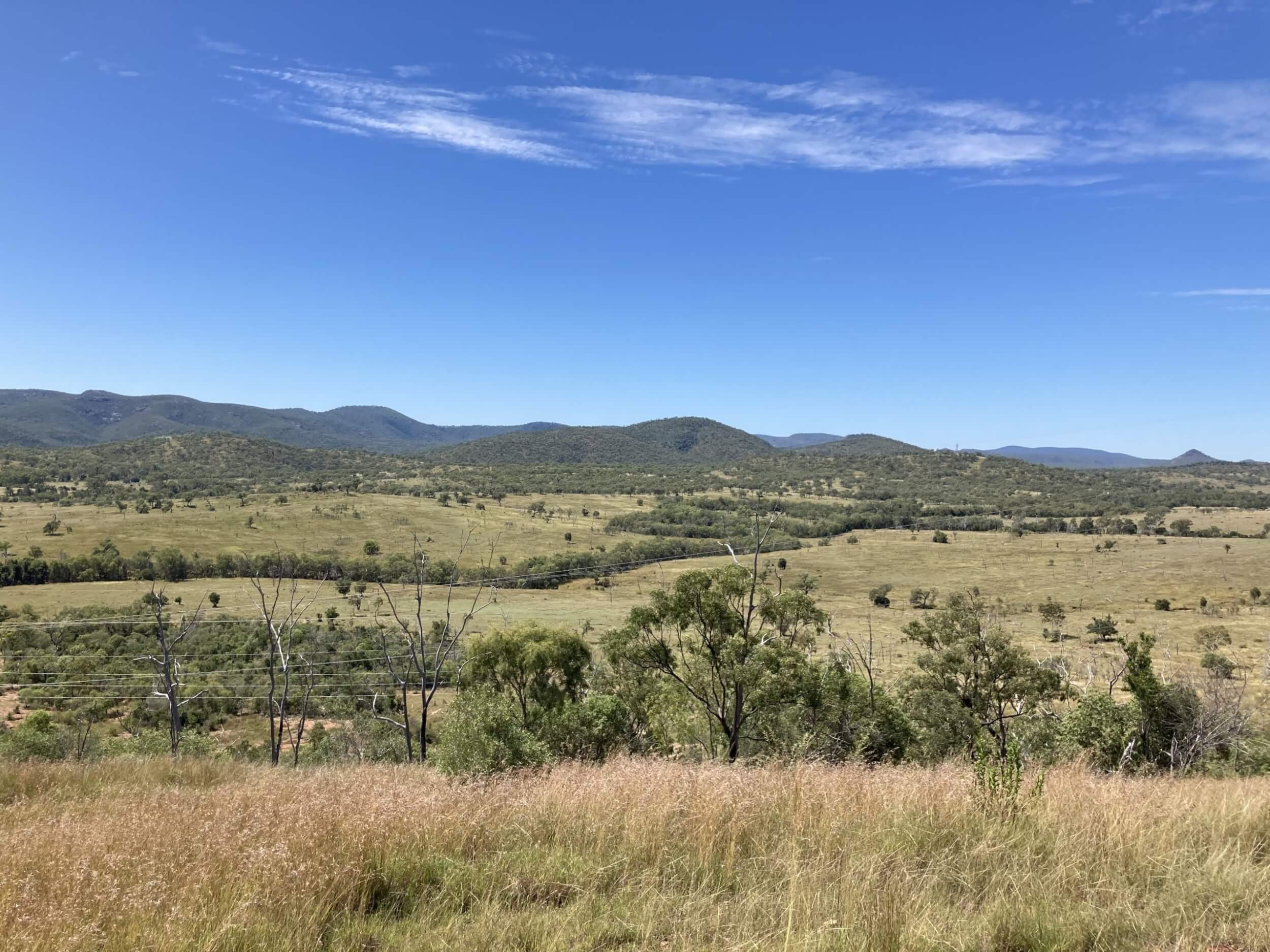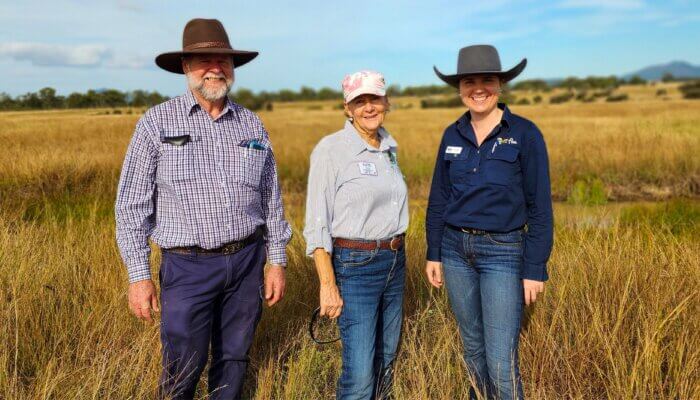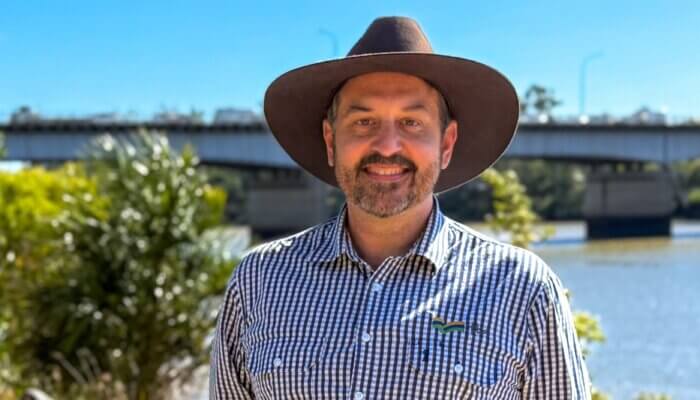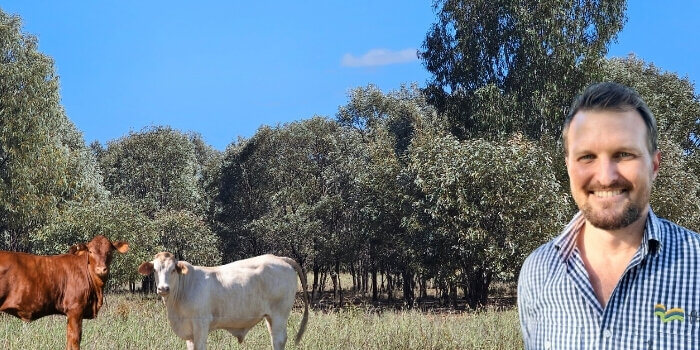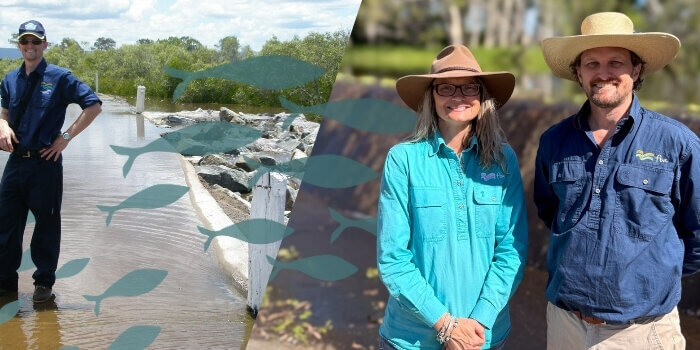
Good news travels fast – A GRASS project
Posted on October 3rd, 2023
It’s true what they say, good news travels fast!
Talk of Fitzroy Basin Association’s (FBA) excellent work on overgrazing and erosion issues reached property owner Ben Featherstone when he began managing his family property Kenkara, a 945ha cattle breeding operation 75km northwest of Rockhampton.




Given the vast properties in central Queensland, the opportunity to share challenges, new ideas or different ways of doing things when time allows is integral to farming life, so when Ben recently met up with his neighbours, he took their advice.
“We heard about FBA through some of our neighbours who had done an FBA program on erosion control in their creeks. They recommended we contact FBA about our issues with cattle overgrazing certain areas of the block,” Ben said.
“Our cattle tended to graze on two or three spots. The better country was eaten down to ground level so when it rained we’d lose all our topsoil. Meanwhile, 100m away the grass was waist high, but the cattle just weren’t utilising the feed, so we wanted to fix that.


“After chatting with FBA, Land Management Officer Sophie Wilkins visited the property and identified that we would be an ideal candidate for the Grazing Resilience and Sustainable Solutions Program (GRASS Program).”
The GRASS program supports graziers to develop and implement a tailor-made action plan for land management. The action plan assists graziers to improve and then maintain their land condition with a specific focus on improving ground cover. The GRASS program supports good land management practices which limits soil loss and sediment run-off to waterways flowing to the Great Barrier Reef.
Ben and Sophie toured the property sharing the issues and then developed a GRASS land management plan, which Sophie said was the ideal outcome.
“On the initial property visit we drove around Kenkara, and we were able to identify some of the over-utilised areas as C land condition and the under-utlised areas as B land condition. We worked together to develop an action plan, which enabled Ben and his wife Nicole to clearly set out short-term and long-term business goals,” Sophie said.
“The land management plan included an existing infrastructure map and identified measures Ben and Nicole could implement to improve land condition.”
Ben and Nicole had also bought a 650ha neighboring property about a year ago, which was essentially one big paddock with one watering point, running 100 breeders and a few other cattle.
Sophie, Ben and Nicole identified the main business goal for the property was to implement fencing and water infrastructure, splitting up the 650ha paddock. This allowed Ben and Nicole to start a rotational grazing system to spread out grazing pressure and improve the land condition across the property.
“Ben and Nicole have begun splitting the 650ha paddock into six paddocks with a trough in each paddock. These changes will allow a rotational grazing system and the opportunity to rest the paddocks and match stocking rate to carrying capacity. Reducing walk-to-water distances will also encourage cattle to use the pasture evenly. Overall, these practices will improve land condition across the property long-term,” Sophie said.
As Ben applies the new farming practices and looks out for new opportunities, he’s laying the strong foundations for his two young boys and their farming future.
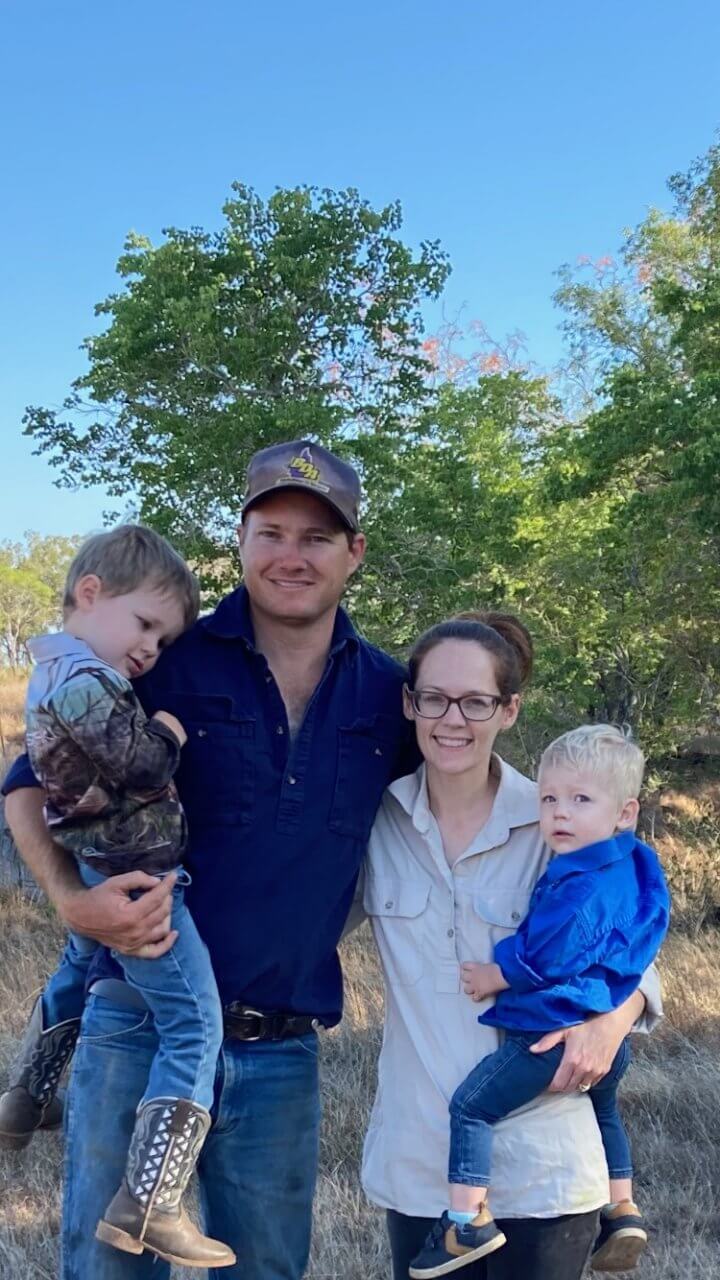
“We believe implementing these practices will provide an opportunity to improve efficiencies and contribute to increasing the overall business profitability, as well as building a legacy for our two boys – they’re only young but we’d love to have these best management practices set up for them to learn and for the long term,” Ben said.
While Sophie used her extensive experience and knowledge in land management at Kenkara, she was also thrilled to be working with such enthusiastic land managers.
“Ben and Nicole’s positive attitude, willingness to learn and implement practice change has been commendable and we’re excited to keep supporting them long-term,” she said.
Ben added that “while I’ve read about best land management practices, it was good to have a guide through the process – actually talking one-on-one about it, not just reading about the idea, actually learning how to best implement it all on your own property.”
If you would like to make a start towards implementing changes like these on your property, reach out to FBA.
Contact FBA’s Agricultural Leader, Reece – Reece Brooks | 0447 992 800 | Reece.Brooks@fba.org.au
The Grazing Resilience and Sustainable Solutions (GRASS) program is funded through the Queensland Government’s Queensland Reef Water Quality Program and delivered by the Department of Agriculture and Fisheries (DAF), Fitzroy Basin Association, Burnett Mary Regional Group, and NQ Dry Tropics.





